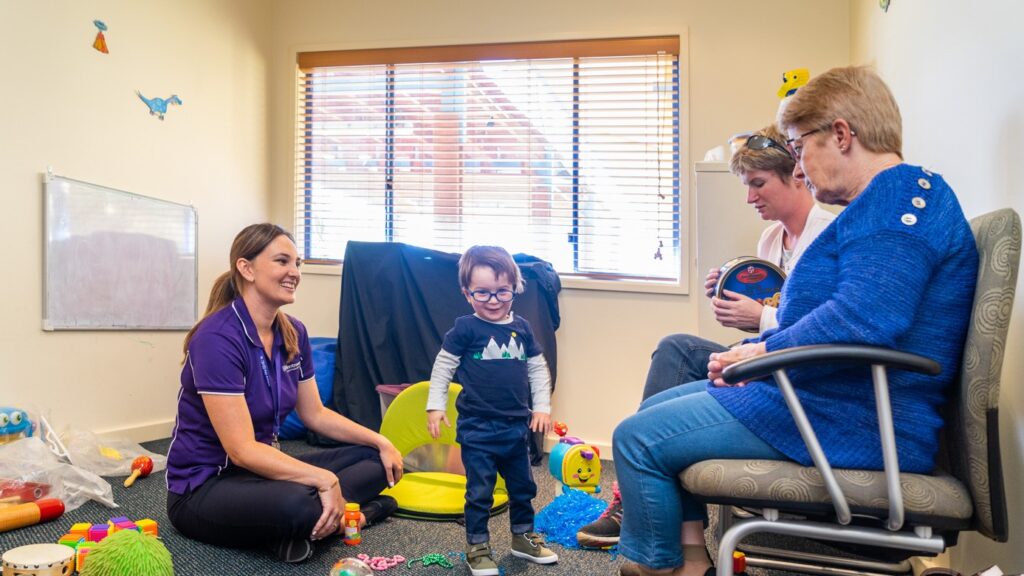Everyone deserves a break. This includes disabled persons and their caregivers. It is just as important for the person receiving care as it is for the person providing care to have the space, time, and ability to be independent. This is when respite care can come in useful.
What is respite care?
Caregivers can use respite to break from their caregiving obligations by utilising alternative care. Alternatively, care can be offered at home or in a specialized facility during the day, overnight, or for a more extended period. Respite not only allows carers to take a break, but it also allows people with disabilities to interact with new people and gain more independence.
Respite care and the NDIS
Since the NDIS was introduced, there has been considerable uncertainty over respite care. This is because the NDIS focuses on people with disabilities, their goals, and allowing them to live as independently as possible.
While the NDIS maintains this central focus, it also acknowledges the critical role that carers play in the lives of their loved ones. Therefore, informal support is defined as someone who is a family member or friend who provides unpaid assistance to a person with a disability.
The term ‘respite care’ was used before the NDIS was introduced; however, it is no longer employed. There is currently no item in the NDIS that expressly states ‘respite care,’ making it difficult for those having difficulty finding information.
If you’re looking for ‘respite care,’ you should be aware of some key NDIS terms.
They are as follows:
STA (Short Term Accommodation and Assistance) – Temporary assistance that differs from standard arrangements. Non-typical days are included in STA, as are short stays in a group-based facility (short-term accommodation) or the purchase of additional in-home support.
Assistance with Daily Living – This category refers to assisting and/or overseeing personal daily duties so that the participant can live as independently as possible. This support can be given in various settings, including, but not limited to, the participant’s own home.
Overnight self-care assistance – This refers to help with or supervision of personal tasks of daily living when overnight assistance is required. There are several levels of involvement, such as whether the caregiver can sleep, must stay awake, or must provide intensive nightly care.
Levels respite care under the NDIS
Under the NDIS, there are three levels of respite services available, which are defined by the severity of the disability and the level of support required from family and carers.
Level 1: 7 to 14 days per year to allow families or carers who provide help most days to participate in important activities for other family members.
Level 2: 14 to 28 days per year as part of a long-term strategy to gain independence.
Level 3: Allows families and carers to provide support for 28 days per year if their care recipient has serious behaviour challenges or requires intense support.
Higher levels of support may be an option to ensure that families and carers can continue to work or study or put in place stronger long-term supports.
Different types of respite care
The following are the primary types of respite care:
home respite provides support in the home from a paid worker to engage in an activity that the person receiving care enjoys, such as socialising or assisting with learning a new skill. It’s also possible to stay overnight or throughout the weekend (more details below).
Overnight or weekend – involves a paid worker giving care at a person’s home or in a facility for a period of time.
Community access – allows a person with a disability to conduct an activity, socialise, or attend a group class with the assistance of a paid worker for a set length of time.
Respite in a day centre or club for people with disabilities – This is usually held at a day centre or club that organises group activities for people with disabilities.
Residential respite – Entails the care recipient spending a night, weekend, week, or several weeks in a residential care facility. Under the NDIS, this is referred to as “short-term accommodation and assistance (STA).”
Recreational respite – When the person receiving care attends a camp or day activity with a group of other people with disabilities or peers their age.
Emergency – If the caregiver has an emergency and is unable to offer care, an alternate supported accommodation or in-home help is provided.
Informal – Informal (unpaid) respite care can be arranged with the help of a family member or friend.
Getting access to respite care.
It’s crucial to talk to the NDIA if respite care will help both the participant and their caregiver and if one of the participant’s goals is to be more independent in some aspects of their life.
The NDIA can next consider what is ‘reasonable and necessary’ to assess what support can be provided and included in the participant’s NDIS Plan.
In an NDIS plan, funding for STA falls under the Core Supports Assistance with Daily Life category. If this Core Support is part of your NDIS Plan, you can opt to spend some of your funding to help with respite care and support.
Are you looking for a short break away from home and the daily routines?
Short-term accommodation is a fantastic way for individuals with disabilities to enjoy a mini getaway or a holiday while also giving their families and caregivers respite, a break, and time for other tasks.
Our team at Personalised Support Services has a lot of experience assisting people with complex support needs. So you will feel confident and safe in our stays.
For more information about Short-term accommodation, contact us today!


